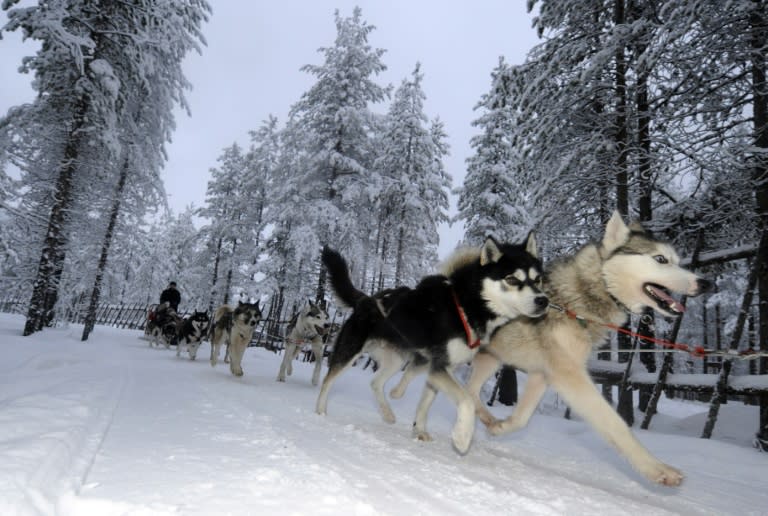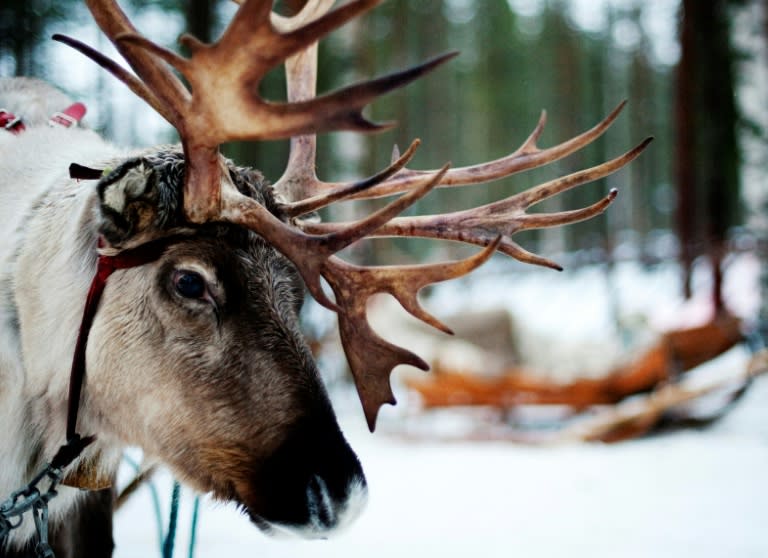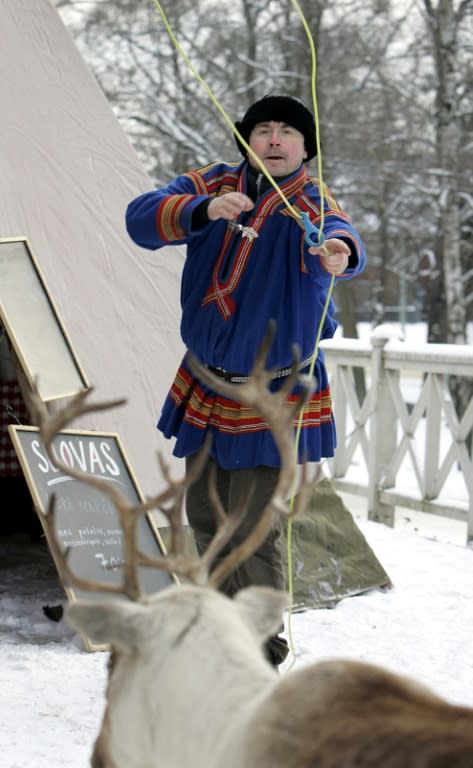Finnish indigenous Sami seek to end 'exploitative tourism'
Representatives of Finland's indigenous Sami said Tuesday they would urge holidaymakers to stop visiting igloos and riding husky sleds in Lapland, claiming non-Sami traditions are being passed off as authentic thereby exploiting their culture. "The widespread, inaccurate and primitive image of the Sami which comes across in exploitative tourism is at best objectifying and offensive to the Sami community," Finland's Sami parliament, a representative body in the nation's northernmost town of Inari, said. "The repeated, public, inaccurate image and the spreading of incorrect information are harmful both to the Sami community and to the vitality of Sami culture," added the representatives who want to sanction tour operators who do not comply. The Sami, formerly known as Lapps, are spread out across the northern parts of Sweden, Finland and Norway and the Russian Kola peninsula, in a region known as Lapland. According to the Finnish Sami parliament, there are 10,000 Sami in Finland. The proposal lamented the spread of non-Sami traditions being passed off as authentic, such as husky rides and igloos, and the widespread sale of low-quality handicrafts. Finnish Lapland has become an increasingly popular destination for holidaymakers, who flock to the Arctic Circle in winter to meet the 'real' Father Christmas and engage in winter pursuits such as husky sledding. Last year, visitors spent 3.5 million nights in Lapland, up from 2.6 million a decade earlier, according to Finland's tourist board. But some of the area's indigenous population feel the growth has been at their expense. - 'Long and sad history' - "There is a long and sad history of how Sami culture has been used in tourism," Kirsi Suomi, leader of the Culturally Responsible Sami Tourism project and lead author of the proposals, told AFP. The project, funded by Finland's culture ministry, gathered testimony from Samis about the impacts of tourism on their culture. Among the practices causing offence highlighted by the proposals were tourism workers pretending to be Sami when they're not, and products or tourist attractions portraying Sami people as magical and primitive. The proposal recommended that outside designated tourist zones, visitors should be banned from approaching -- and potentially distressing -- reindeer, a source of livelihood for many Sami. Holidaymakers should also be urged not to photograph Sami dressed in their national costume, apart from those at tourist sites. "If for example one person refrains from wearing Sami dress because they do not want to be photographed by tourists, that is one person too many," the proposal stated. Instead, the document advocated offering visitors a more authentic and culturally sensitive view of the Sami. "Sami tourism should above all support the preservation of Sami culture and ways of life for future generations," the proposal said. The Sami share a common culture based on their closeness to nature, traditionally involved in reindeer herding or coastal fishing, fur trapping, and sheep herding. They have strong cultural traditions, notably handicrafts and the singing of 'yoik' song chants, and speak related dialects of their Sami language.




